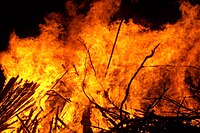
Evaluation of the Filtered Noise Turbulent Inflow Generation Method
Sign Up to like & getrecommendations! Published in 2017 at "Flow, Turbulence and Combustion"
DOI: 10.1007/s10494-016-9798-2
Abstract: Flows around buildings and in urban areas have the ability to exchange mass and momentum through mixing layers. The complex dynamical phenomena arising in mixing layers can be studied using Large Eddy Simulation (LES). As… read more here.
Keywords: filtered noise; turbulent inflow; method; evaluation filtered ... See more keywords

Combustion of H2/air supersonic mixing layers with splitter plate: Flame structure and statistical characteristics
Sign Up to like & getrecommendations! Published in 2020 at "Acta Astronautica"
DOI: 10.1016/j.actaastro.2020.04.037
Abstract: Abstract H2/air supersonic mixing layers were calculated with different splitter plates thickness. The accumulation of OH radicals between the most reactive and stoichiometric mixture fraction causes the corresponding change of reactions. With the increase of… read more here.
Keywords: mixing layers; supersonic mixing; air supersonic; flame ... See more keywords

Topology-based characterization of compressibility effects in mixing layers
Sign Up to like & getrecommendations! Published in 2019 at "Journal of Fluid Mechanics"
DOI: 10.1017/jfm.2019.434
Abstract: Direct numerical simulations of high-speed mixing layers are used to characterize the effects of compressibility on the basis of local streamline topology and vortical structure. Temporal simulations of the mixing layers are performed using a… read more here.
Keywords: topology; mixing layers; kinetic energy; mach number ... See more keywords

Continuum breakdown in compressible mixing layers.
Sign Up to like & getrecommendations! Published in 2022 at "Physical review. E"
DOI: 10.1103/physreve.105.065102
Abstract: Gas-kinetic simulations of rarefied and compressible mixing layers are performed to characterize continuum breakdown and the effect on the Kelvin-Helmholtz instability. The unified gas-kinetic scheme (UGKS) is used to perform the simulations at different Mach… read more here.
Keywords: heat flux; continuum breakdown; mach; compressible mixing ... See more keywords